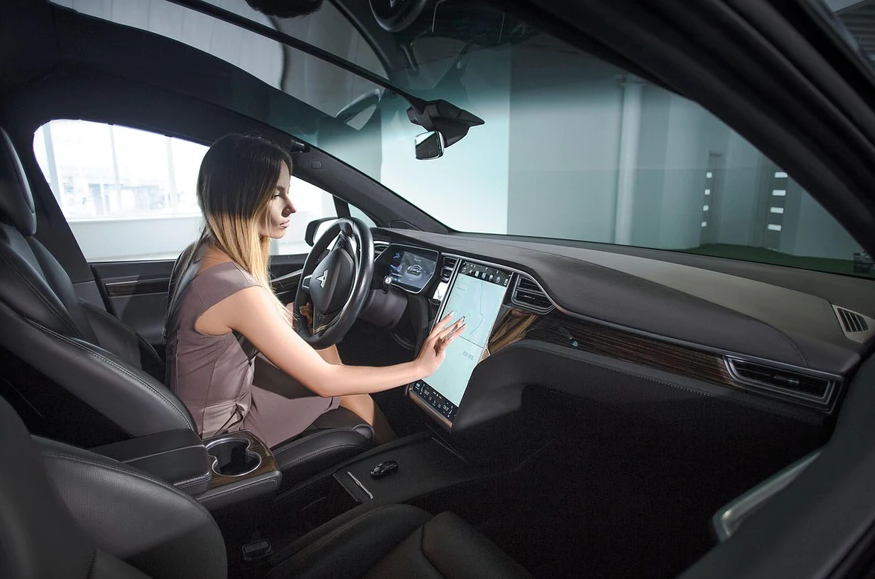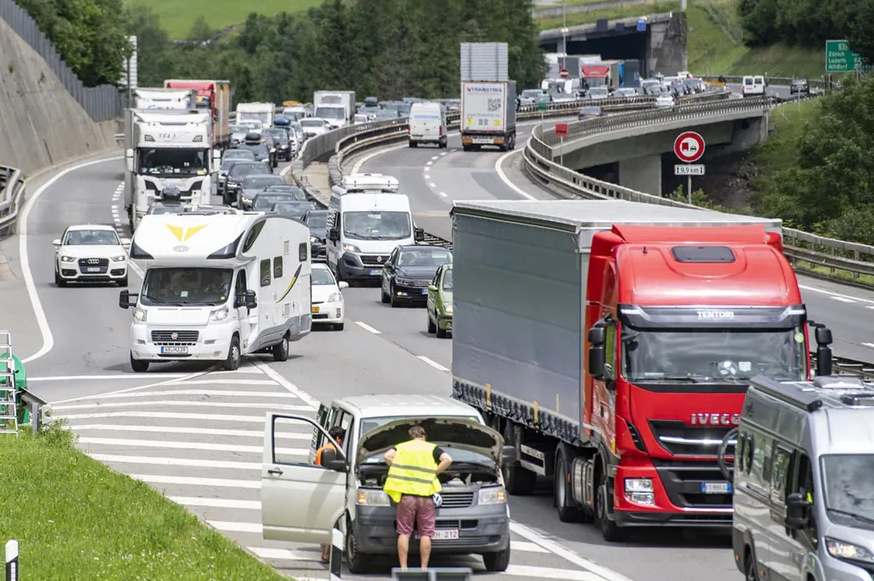Credit: Zoonar Gmbh / Alamy Stock Photo The number of new electric cars sold in Switzerland continues to accelerate – even faster than predicted, according to the Touring Club Switzerland (TCS) car association. My specialty is telling stories, and decoding what happens in Switzerland and the world from accumulated data and statistics. An expatriate in Switzerland for several years, I have also worked as a multimedia journalist for the Swiss national broadcaster. More from this author | French Department Sales of alternative fuel vehicles [all electric, plug-in hybrids, other hybrid models and gas-powered vehicles] climbed steeply last year to account for almost half of all new cars sold in Switzerland. 2021 ended particularly strongly. For the September to
Topics:
Swissinfo considers the following as important: 3.) Swissinfo Business and Economy, 3) Swiss Markets and News, Featured, Lifestyle, newsletter
This could be interesting, too:
Nachrichten Ticker - www.finanzen.ch writes Die Performance der Kryptowährungen in KW 9: Das hat sich bei Bitcoin, Ether & Co. getan
Nachrichten Ticker - www.finanzen.ch writes Wer verbirgt sich hinter der Ethereum-Technologie?
Martin Hartmann writes Eine Analyse nach den Lehren von Milton Friedman
Marc Chandler writes March 2025 Monthly
The number of new electric cars sold in Switzerland continues to accelerate – even faster than predicted, according to the Touring Club Switzerland (TCS) car association.
Sales of alternative fuel vehicles [all electric, plug-in hybrids, other hybrid models and gas-powered vehicles] climbed steeply last year to account for almost half of all new cars sold in Switzerland. 2021 ended particularly strongly. For the September to November period, fully electric vehicles accounted for 18.3% of new registrations and plug-in vehicles (electric and plug-in hybrids) hit a record 28%, Touring Club Switzerland (TCS) reported.
The TCS described the 18.3% threshold as a milestone. Electric vehicles had clearly gone beyond a “tipping point” and moved into the mainstream, it said.
“Given the ongoing technological advancements, increased social acceptance and the ever-increasing choice of electric vehicle models, the development of electromobility is progressing faster than expected. The 50%-mark for fully electric vehicles, which most experts expected only around 2030, should therefore be reached significantly faster than expected,” it said.
Overall, sales of vehicles in Switzerland were dampened in 2021 by Covid-19, supply chain delays and computer chip shortages. This is despite plenty of Swiss customers wanting new cars, according to the Swiss importer Auto-Schweiz. Annual sales (238,481 passenger vehicles in 2021) were up slightly versus 2020 but almost a quarter lower than 2019.
Auto-Schweiz spokesperson Christoph Wolnik confirmed the computer chip shortage was having an impact on e-car sales.
“Since the start of the computer chip crisis, automakers and car importers have systematically prioritised electric models in their production and delivery plans,” he explained, referring to putting precious semiconductors in new electric vehicles rather than in combustion-engine models.
Looking ahead, Wolnik said this trend would continue over the next six months. He estimates that all alternative fuel vehicles together will surpass the 50% sales threshold in 2022, with all-electric probably accounting for 18-19%, driven partly by the computer chip problem, as well as a wider offer of cheaper models and tighter European CO2 emissions regulations.
The fast growth in electric cars remains uneven globally, however. Switzerland features in the top of the international ranking; Norway meanwhile continues to eclipse other nations. Pure electric cars made up nearly two-thirds of Norway’s new sales in 2021, as the country pursues its goal of becoming the first to end the sale of petrol and diesel cars.
Oil-producing Norway continues to encourage the switch to zero emission cars with reduced taxes on electric vehicles and a range of incentives and exemptions to entice car buyers. In Switzerland incentives for plug-in vehicles are not coordinated and vary between cantons.
Only three automakers – Tesla, Hyundai and Toyota – saw an increase in sales in Switzerland compared with 2019, while all other manufacturers struggled. At the end of 2020, there were 43 pure electric models available in Switzerland. A year later the offer had increased by 50%. Sales of the Tesla Model 3 all-electric sedan stood out. Another trend: the Swiss are swapping their 4x4s for new small electric SUVs and crossovers, which emerged as some of the most popular all-electric newcomers last year.
Mobility and electric cars feature in the government’s proposed new environment law, presented last December,External link which aims to halve Switzerland’s greenhouse gas emissions by 2030 compared to 1990 levels.
Under the new law, the government wants to impose a stricter CO2 emissions limit for vehicles, in line with EU rules, and penalise car importers if they fail to reach the new targets.
The new law should lead to more climate-friendly vehicles being imported each year and help fund a CHF210 million ($230 million) project to install more electric car power charging points.
A total of 8,497 public recharging points were available across Switzerland in 2021, according to the European Alternative Fuels Observatory – an increase of over 600 compared with the previous year. The density of public charging infrastructure in Switzerland is about the European average. But where Switzerland still lags behind, say experts, is private charging infrastructure: car owners’ ability to charge at home, especially in urban areas.
“The hurdles for home charging are still too high for tenants, owners of apartments and residents who park on the streets,” said Krispin Romang, managing director of the Swiss eMobility association, which is pushing the government for a political solution on this issue.
Watch the video below for more on the electric charging infrastructure challenges in Switzerland.
Tags: Featured,Lifestyle,newsletter










